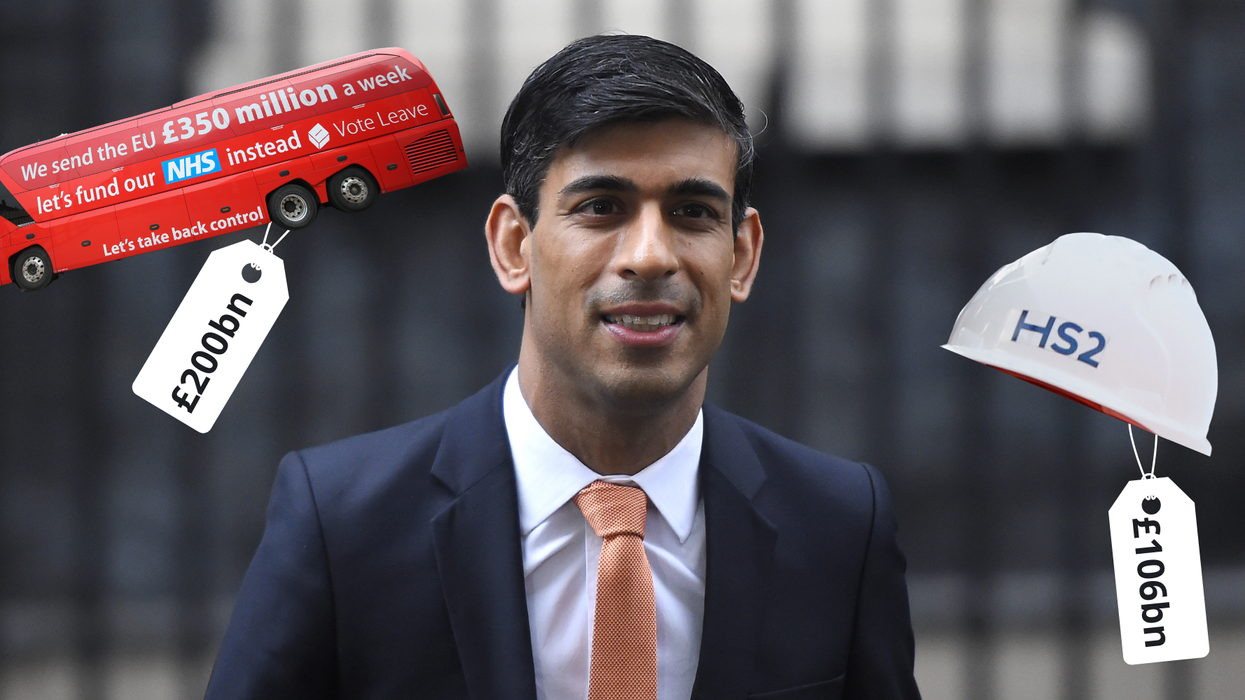Moya Lothian-McLean
May 14, 2020

Getty
by Moya Lothian-McLean
Against the odds (read: the Tory party’s traditional attitude towards state support for the general public), Rishi Sunak announced this week that he would be extending the government’s furlough scheme until October.
Given it is keeping 7.5 million jobs safe for now (although hundreds of thousands are still excluded from it), this is extremely welcome news for workers and business experts alike.
Carolyn Fairbairn, director general of the Confederation of British Industry (CBI) praised the decisions to extend the scheme, telling The Telegraph it would: “protect millions of jobs”.
However, that doesn’t seem to be enough for some individuals who have criticised the scheme’s cost, which is estimated to total £80bn to £100bn (£14bn per month).
Former England footballer Eniola Aluko said, in a series of now-deleted tweets, that the scheme created a “do-nothing” mentality and a “culture of entitlement”.
A senior Tory source was also recently reported to have said Brits were “addicted” to the scheme.
While £100bn is a big sum, failing to support workers (tax-paying ones at that) at this time could lead to millions losing their jobs and the economy entering freefall.
Which makes it seem like an adequate price to pay to avoid that fate.
The furlough scheme is also not the only thing to come at great cost to the UK treasury – and some of those other pricey projects or money-losers are not as immediately beneficial to the UK taxpayer.
Here’s five things that cost the UK government more than the furlough scheme:
1. £137bn = bailing out the banks
According to the Office of Budget Responsibility, the government spent £137bn of public money to bail out banks on the verge of collapse during the 2008 financial crisis.
The public called for bankers involved to face criminal charges and the banks themselves to undergo huge reform. Did this happen? Not really.
While there has been more consumer protection put in place to avoid individuals losing their money in the event of banks going bust, the banks are now “bigger than ever” and only five UK bankers were convicted for their role in a crash estimated to have cost the British economy “£7.4trillion in lost output”.
2. £200bn = Brexit
It seems 2021 will be quite the year, given the UK will both be (hopefully) emerging from a pandemic and Brexit will kick in – whether we have a deal or not. The cost of leaving the EU is predicted to be about £200bn byBloomberg analysis, with £130bn of that hitting before we’ve even properly waved out goodbyes. Brexit costs are just the cherry on top of a recession we needed.
3. £106bn = HS2
The controversial high-speed rail link between London, the West Midlands and the north was initially set to cost £56bn.
But leaked government estimates show the figure has risen to £106bn. However, while the government has promoted the project as a super-fast link between London and the north, real benefits seem to lie in high-speed line freeing up capacity on existing rail networks for more local services to run between regional towns not currently serviced by regular trains. That is, if we ever leave the house again.
4. £100bn-£167bn = cost of Trident
Has anyone actually ever seen Trident? No? Is it even real? Who knows!
But our infamous nuclear deterrent is estimated by Reuters to have lifetime costs of £167bn, calculated from government figures.
In 2014 the independent Trident commission said its lifetime cost would be £100bn. Either way, the figure is high for a piece of kit that has never yet been wheeled out in any meaningful way, except as a bonus question in election debates.
5. £34bn-£90bn = cost of uncollected tax
It’s hard to estimate exactly how much those who avoid paying their proper tax actually cost the UK because some of them are very good at it.
Large companies in particular manage to somehow pay very little tax in return for large profits; in 2018 Amazon paid £220m in tax, despite revenue of £10.9bn. But while HMRC say the tax gap (which is all the tax that goes uncollected and may not just be due to avoidance) is about £34 billion, critics say its estimates are very conservative and the methodology wrong.
For example, it doesn’t calculate for “profits shifting”, which are what giant corporations like Google and Facebook are alleged to do in order to avoid tax payments. Other estimates suggest that the tax gap is more like £90bn. Which is a lot of tax that could be called in.
Almost enough to cover the furlough scheme and prevent the UK undergoing another decade of ‘necessary’ austerity.
Top 100
The Conversation (0)













